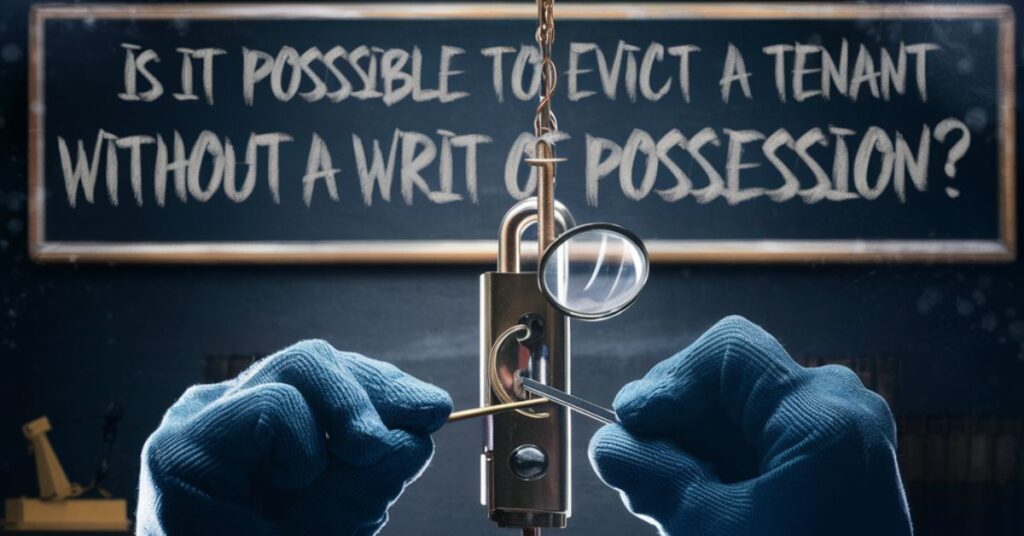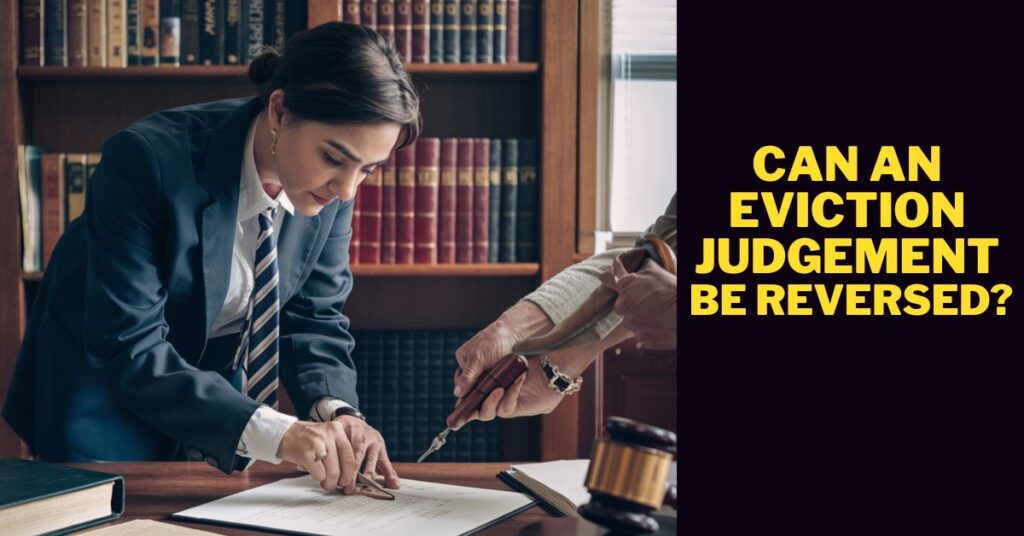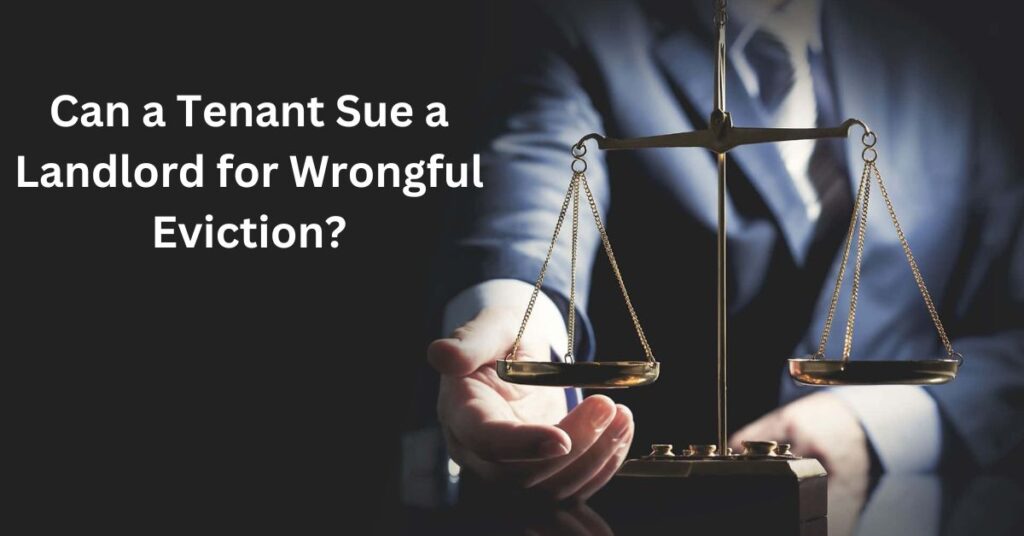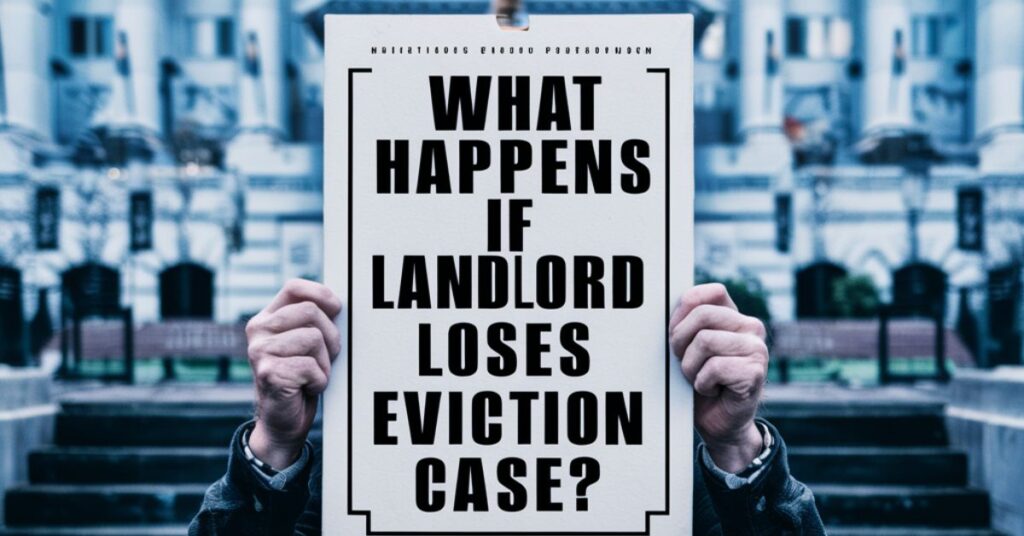You’re a landlord dealing with a tricky tenant situation, and despite your best efforts, you end up losing the eviction case. Now, what happens next? Well, let’s break it down. If you lose your tenant gets to stay put in your property, following the existing lease agreement. Yep, they’re not going anywhere unless they mess up again.
Plus, you might end up facing some hefty financial penalties like paying the tenant’s legal fees or even fines. And let’s not forget the strain it puts on your relationship with the tenant it can get pretty tense.
But hey it’s not all doom and gloom! There are still options like negotiating a buyout agreement or addressing lease violations separately. While losing an eviction case isn’t ideal there are ways to navigate through it. Just remember to keep calm and explore your alternatives.
Reasons Why a Landlord May Lose An Eviction Case
Sure thing! Losing an eviction case as a landlord can be a real headache, but understanding why it might happen is key to avoiding it in the first place. Here are some common reasons why landlords may end up on the losing side of an eviction case:
- Procedural Errors
This is a big one. Landlords need to follow all the legal steps and procedures when evicting a tenant. Missing even a small detail, like serving the correct notices or filing paperwork properly, can lead to the case being dismissed.
- Tenant Defenses
Tenants have rights too, and they can present valid defenses in response to an eviction lawsuit. These defenses might include claims that the landlord breached the lease agreement, made promises not in writing, or waived certain lease violations in the past.
- Insufficient Evidence
Evidence is crucial in any legal case, including evictions. If landlords fail to provide enough evidence to support their claims, the court may rule in favor of the tenant.
- Discrimination
Evicting a tenant based on discriminatory reasons, such as race, religion, or family status, is against the law. Landlords found to be engaging in discriminatory practices can face legal consequences and lose their eviction case.
- Retaliation
Many states have laws that prohibit retaliatory evictions. If a landlord tries to evict a tenant in retaliation for exercising their legal rights, such as reporting housing code violations, the court may rule against the landlord.
- Bankruptcy Filing by the Tenant:
Tenant bankruptcy filings can complicate the eviction process and delay proceedings. Landlords need to navigate these situations carefully to avoid losing their case.
- Lack of Landlord Standing
Only individuals with legal authority can file for eviction. If the landlord initiating the eviction lacks proper authorization, the case may be dismissed.
- Breach of Habitability
Landlords are required to provide habitable living conditions for their tenants. If the rental property is uninhabitable due to unresolved issues, the eviction case may be dismissed.
By being aware of these potential pitfalls, landlords can take proactive steps to avoid losing an eviction case and ensure a smoother process overall.
What Happens If Landlord Loses Eviction Case
Evicting a tenant is rarely a straightforward process. Landlords must tread carefully ensuring all legal procedures are followed to the letter. Unfortunately even with the best intentions they may find themselves on the losing end of an eviction case. Understanding the reasons behind such outcomes is crucial for landlords aiming to avoid these pitfalls.

Procedural Errors:
One of the most common reasons for landlords losing an eviction case is procedural errors. From serving incorrect notices to mishandling paperwork, even minor missteps can result in the dismissal of the case. It’s imperative for landlords to meticulously adhere to all legal requirements throughout the eviction process to prevent such errors.
Tenant Defenses:
Tenants possess legal rights, and they can mount strong defenses against eviction proceedings. These defenses might include claims of lease breaches by the landlord, verbal agreements contradicting written leases, or past instances where the landlord overlooked lease violations. Landlords must be prepared to address and counter these defenses effectively.
Insufficient Evidence:
Evidence forms the backbone of any eviction case. If landlords fail to provide compelling evidence to support their claims, the court may rule in favor of the tenant. This underscores the importance of thorough documentation and gathering sufficient evidence before initiating eviction proceedings.
Discrimination:
Evicting a tenant based on discriminatory grounds is illegal and strictly prohibited. Landlords found to be engaging in discriminatory practices, such as evicting tenants based on race, religion, or family status, can face severe legal consequences and lose their eviction case. It’s crucial for landlords to adhere to fair housing laws and treat all tenants equally under the law.
Retaliation:
Many jurisdictions have laws in place to prevent retaliatory evictions. If a landlord attempts to evict a tenant in retaliation for exercising their legal rights, such as reporting housing code violations, the court may rule against the landlord. Landlords must avoid any actions that could be construed as retaliatory to protect themselves from losing an eviction case.
Bankruptcy Filing by the Tenant:
Tenant bankruptcy filings can throw a wrench into the eviction process, causing delays and complications. Landlords need to navigate these situations carefully, ensuring compliance with bankruptcy laws while pursuing eviction proceedings.
Lack of Landlord Standing:
Only individuals with legal authority can file for eviction. If the landlord initiating the eviction lacks proper authorization or standing, the case may be dismissed. It’s essential for landlords to ensure they have the necessary legal standing before proceeding with eviction actions.
Breach of Habitability:
Landlords are obligated to provide habitable living conditions for their tenants. If the rental property becomes uninhabitable due to unresolved issues, the eviction case may be dismissed. Landlords must promptly address any maintenance or habitability issues to avoid jeopardizing their case.
Is It Possible to Evict a Tenant Without a Writ of Possession?

When landlords find themselves in the challenging position of needing to evict a tenant, they often seek clarity on the legal requirements and procedures involved. Among the questions that frequently arise is whether it’s possible to evict a tenant without obtaining a Writ of Possession. Let’s delve into this topic to shed light on the matter.
Understanding Writs of Possession:
Before delving into the eviction process, it’s essential to grasp the concept of a Writ of Possession. Essentially, a Writ of Possession is a legal document issued by a court that authorizes the landlord to take possession of the rental property from the tenant. It is a critical component of the eviction process and serves as the final step before physically removing the tenant from the premises.
Eviction Process Overview:
Evicting a tenant typically involves several steps, which may vary depending on local laws and regulations. However, the general process often includes:
- Notice to Vacate: The landlord serves the tenant with a formal notice to vacate the premises, providing a specified period for the tenant to vacate voluntarily.
- Filing an Eviction Lawsuit: If the tenant fails to vacate by the specified deadline, the landlord may file an eviction lawsuit, also known as an unlawful detainer action, with the appropriate court.
- Court Hearing: Both parties have the opportunity to present their case at a court hearing, where a judge will evaluate the evidence and render a decision.
- Issuance of Writ of Possession: If the court rules in favor of the landlord, a Writ of Possession is issued, granting the landlord the legal authority to take possession of the property from the tenant.
Is It Possible to Evict Without a Writ of Possession?
In most jurisdictions, evicting a tenant without obtaining a Writ of Possession is illegal. The Writ of Possession serves as a court order authorizing the landlord to physically remove the tenant from the premises if necessary. Without this legal document, any attempt by the landlord to forcibly evict the tenant may be deemed unlawful, potentially resulting in legal repercussions for the landlord.
Legal Requirements and Consequences:
Attempting to evict a tenant without a Writ of Possession can have serious legal consequences for landlords. Not only is it a violation of the tenant’s rights, but it may also expose the landlord to lawsuits for wrongful eviction, damages, and legal fees. Additionally, law enforcement officials are unlikely to assist landlords in removing tenants from the property without a valid Writ of Possession.
What Are Options After Losing an Eviction Lawsuit?

So, let’s say you’re a landlord, and things didn’t go your way in court you lost the eviction lawsuit. It can feel like hitting a wall but hey are still options on the table. First off you could try negotiating a deal with the tenant a buyout agreement where you pay them to leave early. It’s worth a shot to avoid more legal headaches.
Then, there’s the option to address any lease violations separately like charging fees for damages or unpaid rent. You could also rent the property as is without fixing anything major. And when the lease expires you have the right to bump up the rent if local laws allow it.
Plus fixing any underlying issues that led to the eviction in the first place is a smart move. And if all else fails selling the property might be the way to go it’s a clean break from the tenant trouble. So, while losing an eviction case isn’t ideal, there are still ways to turn things around and move forward.
Can An Eviction Judgement Be Reversed?

When a landlord receives an unfavorable judgment in an eviction case, it can feel like hitting a dead end. However, it’s essential to know that there are potential avenues for reversing an eviction judgment under certain circumstances. Let’s delve into this topic to shed light on the options available to landlords facing this situation.
Legal Grounds for Reversal:
An eviction judgment can be reversed if there are legal grounds to challenge the ruling. Some common legal grounds for seeking reversal include:
- Legal Error: If the court made a legal error during the eviction proceedings, such as misinterpreting the law or applying it incorrectly, it may be possible to challenge the judgment on these grounds.
- New Evidence: If new evidence becomes available that was not presented during the initial proceedings and is deemed significant to the case, it may warrant a reconsideration of the judgment.
- Procedural Irregularities: If there were procedural irregularities or violations of due process during the eviction proceedings, such as failure to properly serve notices or denial of the landlord’s right to present evidence, it may provide grounds for reversal.
- Mistaken Identity: If there was a case of mistaken identity, such as the wrong party being named in the eviction lawsuit, it may warrant a reversal of the judgment.
Seeking Relief Through the Court:
To seek reversal of an eviction judgment, landlords typically need to file a motion with the court that issued the judgment. This motion, known as a motion to reconsider or a motion to vacate the judgment, outlines the legal grounds for seeking reversal and requests that the court reconsider its decision.
Consulting with Legal Counsel:
Given the complexity of legal proceedings and the potential consequences involved, it’s advisable for landlords to seek guidance from legal professionals specializing in landlord-tenant law. An experienced attorney can assess the merits of the case, advise on the best course of action, and represent the landlord’s interests in court proceedings.
Time Limitations and Procedures:
It’s important to note that there are typically time limitations and procedural requirements for seeking reversal of an eviction judgment. Landlords should familiarize themselves with the applicable laws and rules governing such motions in their jurisdiction to ensure compliance and maximize their chances of success.
Can a Tenant Sue a Landlord for Wrongful Eviction?

Absolutely! If you’re a tenant and you think your landlord kicked you out without following the rules, you might be wondering Can I sue them for wrongful eviction? Well, the short answer is yes you can. Wrongful eviction happens when your landlord boots you out illegally or without a valid reason. Maybe they didn’t follow the proper eviction process, or they didn’t have a good reason to evict you in the first place. Whatever the case, you have rights as a tenant, and you can take legal action if you feel those rights were violated.
But here’s the thing: suing your landlord for wrongful eviction isn’t always a walk in the park. It can be a complicated legal process, and you’ll need evidence to back up your claim. That could mean showing that your landlord didn’t follow the correct eviction procedures or proving that they didn’t have a valid reason to kick you out. Plus, you might have to go to court and face your landlord in front of a judge.
If you win your wrongful eviction case, you could be entitled to some pretty sweet compensation. That might include things like getting back into your old place getting reimbursed for any expenses you incurred because of the eviction or even getting money for the emotional stress you went through.
So, while suing your landlord might not be a walk in the park it could be worth it in the end if you believe your rights were violated. Just make sure to gather evidence, consider seeking legal advice, and be prepared for a potentially long and bumpy ride through the legal system.
Conclusion
The aftermath of a landlord losing an eviction case can be multifaceted and impactful. Beyond the immediate implications of the tenant remaining in the property under the existing lease agreement landlords may face financial penalties damage to their reputation and strained landlord tenant relationships.
The loss of rental income, potential insurance issues, and difficulty in removing the tenant later can further compound the challenges. it’s crucial for landlords to approach the situation with resilience and explore alternative strategies such as negotiating buyout agreements addressing lease violations separately or even selling the property.
By proactively addressing underlying issues seeking legal counsel when necessary and maintaining open communication with tenants landlords can navigate the aftermath of a lost eviction case with greater confidence and mitigate its long term impacts. Ultimately while losing an eviction case may present significant challenges it also offers opportunities for growth learning, and improvement in managing landlord tenant relationships in the future.
Frequency Asked Question
What is the penalty for wrongful eviction in California?
The penalty for wrongful eviction in California can include paying the tenant actual damages or three months’ rent, whichever is greater.
How long can a tenant stay after eviction notice in California?
In California, after receiving an eviction notice, a tenant typically has around 5 days to respond or vacate the premises.
How the tenant will be ejected by the landlord?
In California, if a tenant refuses to leave after an eviction order, the landlord must obtain a Writ of Possession and have law enforcement execute the eviction.
What are the possible outcomes of an eviction case?
The possible outcomes of an eviction case include the tenant being ordered to leave the property or being allowed to remain under the existing lease agreement.
What are some steps a landlord can take to avoid losing an eviction case?
Landlords can avoid losing an eviction case by following proper legal procedures, documenting lease violations, and seeking legal advice when needed.
What are the consequences of losing an eviction case?
Consequences of losing an eviction case may include financial penalties, damage to the landlord’s reputation, and strained landlord tenant relationships.
Top of Form







